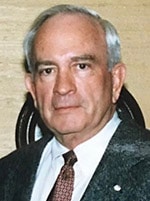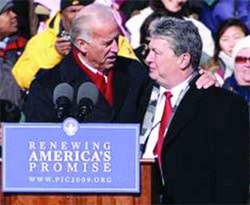Today, Aug. 28, the U.S. Court of Appeals for the 5th Circuit issued its decision in BNSF et al v. SMART-TD (Case No. 20-10162) concerning crew consist.
This decision is a long-awaited victory for the Union. The appellate court vacated the injunction that forced SMART-TD General Committees to bargain over crew consist, despite the existence of moratoria which bar such negotiation.
SMART-TD has always read those moratoria clauses to bar the service of Section 6 Notices to negotiate over crew consist until the last protected employee voluntarily separated from service. Indeed, that is the very reason for their existence.
But despite the long-standing nature of these clauses, the carriers presented a new and novel theory that the moratoria did not actually bar crew-consist negotiations.
The carriers tested this theory out by filing suit against SMART-TD in October 2019 and moving for a preliminary injunction in December 2019. In their request for an injunction, the carriers asked a district court in Texas to force SMART-TD to bargain now in spite of the moratoria. That court issued its decision on February 11, 2020, finding that even though the dispute over the moratoria was minor, and no arbitral determination had been made, SMART-TD was required to bargain now.
Under the RLA, minor disputes must be resolved through arbitration, not Section 6 bargaining. In the 22-page opinion, the appellate court walked through the various bases on which an injunction can be issued in Railway Labor Act (RLA) disputes. The 5th Circuit Court found that none existed here.
Rather, it concluded that the carriers had failed to exhaust the administrative remedy provided under the the RLA arbitration regarding the moratoria clauses.
Author: bnagy
Brother Matt Bryant of Local 1067 (Virginia, Minn.), his wife and their three children lost their house in a fire Aug. 14 and could use some help as they attempt to rebuild their lives.
No one was injured in the fire, as fortunately the family members were all outside of the house when it happened.
“They are currently waiting to rebuild, which will take some time,” said Michael Strand, secretary of Local 1067.
In a display of union fraternalism, Devin Clolinger, an applicant to Local 1067, has established an online fundraiser to help Brother Matt, his wife, Jenna, and their children Emma, 11, Grace, 3, and Matty, 1.
Please follow this link if you are able to donate and help the Bryant family in their time of need.
A boy’s life was saved Aug. 14 and a potential tragedy averted thanks to the fast-thinking actions of Mike Bobrosky III, a member of Local 1006 (Brownsville, Pa).
Down the hill from the home traveling the Norfolk Southern line toward Waynesburg, Pa., conductor Bobrosky and his engineer were traveling southbound. As their train approached Wayne Tunnel nears Waynesburg, Bobrosky said he saw something fouling the track ahead.
“We were coming around a bend. He was in the middle of the gauge inside the tunnel, and we dumped it into emergency,” he said.
The train stopped inside the tunnel, just short of hitting the boy.
“It was inches.”
After the train stopped, they alerted authorities, who had been searching for Reese for quite some time, and coaxed him aboard the locomotive. The hungry boy received a ride to the next crossing from the crew, where authorities were waiting and reunited Reese with his worried mother.
The alertness of Bobrosky and the action he and his engineer took saved a life that day and serves as yet another example of how having two people in the cabs of freight trains makes a difference in safety, contrary to carriers’ arguments.
“It was a right-hand curve – I saw him way before the engineer,” Bobrosky said. “If it was a one-man crew, I don’t know if the train would have stopped.
“It made a difference having two on the crew.”
In reaction to the San Francisco Unified School District’s (SFUSD) decision to lay off about 260 school bus drivers effective Aug. 31 on the cusp of the new school year, SMART-TD Local 1741 plans a massive protest in front of City Hall this week.
Drivers, dispatchers and staff were given little notice about the sudden cuts and plan to assemble at 4:30 p.m. Thursday, Aug. 20 to speak out against the cuts, local union leaders say.
“This is unconscionable. Despite preserving the wages and benefits for drivers and staff since shelter-in-place began in March, it is at this critical point that SFUSD has decided they will no longer pay until the buses are rolling again,” Local 1741 President Sharon Chappill said. “The chaos as drivers scramble to maintain health care coverage for themselves and their families, and then switch coverage back a few months later when they return to work, is completely unnecessary and a preventable catastrophe.
“Other school districts in the state recognize the importance of covering their transportation contracts until students are safely phased back to in-person. But here in San Francisco, drivers are expected to wait with no wages and no health care until routes start up in a few months.”
Chappill points out that in addition to the wages and benefit loss for the 260 workers, required training and safety certification for drivers will also be halted and that the school district is using the pandemic to resort to underpaid, non-union workers.
“The district has already given transportation contracts to Zum, a rideshare company much like Uber and Lyft. It is a company that profits off of miscategorizing their drivers as contractors who are unable to unionize,” Chappill said. “The layoffs of certified unionized drivers is an excuse to bring in more underpaid, non-unionized workers. This is another blow to the proud union town of San Francisco.
“We are graduates, parents and grandparents of graduates from SFUSD. We are immigrants. We are working families representing the entire spread of diversity found in the Bay Area. We have served the city of San Francisco for 50 years. And we do not think it too much to ask that the city find a way to provide for us for a few months so that we are able to return to the job that we are proud to do.”
Chappill urges people to assemble Thursday to support the workers whose jobs have been jeopardized by the district’s actions.
“We hope you will join us as we raise our voices to defend the school bus drivers of this city.”
Read coverage about the layoffs on KPIX TV-5.
Gregg B. Weaver, a retired member of SMART-TD Local 898 who rode with former Vice President Joe Biden many times during the longtime senator’s commute from Delaware to Washington D.C., was featured in a video presented Monday, Aug. 17, during the first night of the Democratic National Convention.
In the video, the former vice president’s respect and empathy toward the SMART members who served him as he traveled on Amtrak were highlighted.
“I think he’s most comfortable around everyday, working-class people,” Weaver said. “He makes you feel like you belong.”
Another instance of Biden’s concern came after he heard that Weaver had had a heart attack, Weaver recalled in the video.
“I was in a barber shop in New York City and the phone rings,” Weaver said. “And sure enough, it’s Vice President Biden asking how I’m doing — wanted to know the whole story. Kind of funny that you’re talking to the Vice President of the United States, but if I would have told the people in the barber shop, I don’t think they would have believed me.
“I’m not saying like it was me and I’m anything special. Everyone was special to him. We have heroes all over this country … the average guy is important to him.”
Railroad Retirement Board Labor Member John Bragg released the following message on Aug. 4:
Brothers and Sisters:
In my last update on July 9, 2020, I informed you of correspondence that the Railroad Retirement Board (RRB) received from the White House alleging that the National Railroad Retirement Investment Trust (NRRIT) was investing in companies which posed national security threats and raised humanitarian concerns. We were assured by NRRIT that it was not investing in these companies and that it has screening processes in place that identify those companies so that it does not and will not invest in them. Given the seriousness of the allegations, the RRB Board members assured the White House that a follow up with NRRIT would occur. The RRB Board Members sent a letter to NRRIT, again sharing some concerns, and followed up with a conference call on July 29th. NRRIT formally responded to the concerns raised in a letter dated July 30, 2020. That letter is attached for your viewing.
I want to reiterate that our trust fund is stable and NRRIT’s investments are producing the returns needed to ensure the stability of the fund well into the future. Every railroader has the right to retire with financial security and a sense of dignity. The RRB, with the help of NRRIT and its investments, helps ensure that right.
John Bragg,
Labor Member, Railroad Retirement Board




